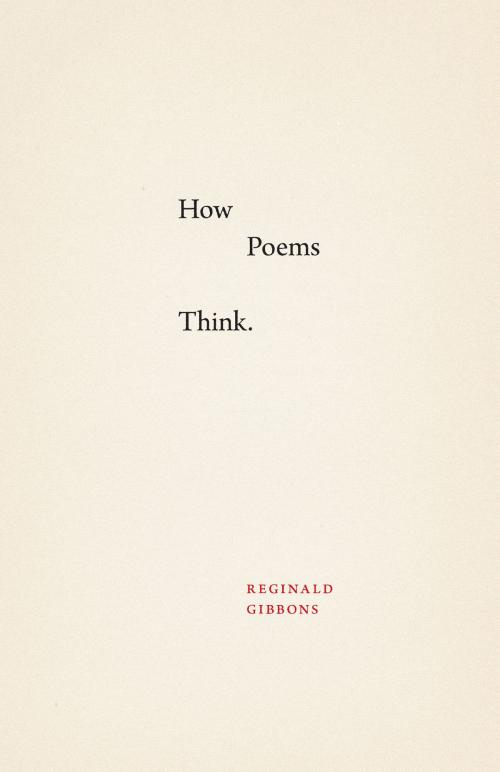How Poems Think
Fiction & Literature, Literary Theory & Criticism, Poetry History & Criticism, European| Author: | Reginald Gibbons | ISBN: | 9780226278148 |
| Publisher: | University of Chicago Press | Publication: | September 23, 2015 |
| Imprint: | University of Chicago Press | Language: | English |
| Author: | Reginald Gibbons |
| ISBN: | 9780226278148 |
| Publisher: | University of Chicago Press |
| Publication: | September 23, 2015 |
| Imprint: | University of Chicago Press |
| Language: | English |
To write or read a poem is often to think in distinctively poetic ways—guided by metaphors, sound, rhythms, associative movement, and more. Poetry’s stance toward language creates a particular intelligence of thought and feeling, a compressed articulation that expands inner experience, imagining with words what cannot always be imagined without them. Through translation, poetry has diversified poetic traditions, and some of poetry’s ways of thinking begin in the ancient world and remain potent even now. In How Poems Think, Reginald Gibbons presents a rich gallery of poetic inventiveness and continuity drawn from a wide range of poets—Sappho, Pindar, Shakespeare, Keats, William Carlos Williams, Marina Tsvetaeva, Gwendolyn Brooks, and many others. Gibbons explores poetic temperament, rhyme, metonymy, etymology, and other elements of poetry as modes of thinking and feeling. In celebration and homage, Gibbons attunes us to the possibilities of poetic thinking.
To write or read a poem is often to think in distinctively poetic ways—guided by metaphors, sound, rhythms, associative movement, and more. Poetry’s stance toward language creates a particular intelligence of thought and feeling, a compressed articulation that expands inner experience, imagining with words what cannot always be imagined without them. Through translation, poetry has diversified poetic traditions, and some of poetry’s ways of thinking begin in the ancient world and remain potent even now. In How Poems Think, Reginald Gibbons presents a rich gallery of poetic inventiveness and continuity drawn from a wide range of poets—Sappho, Pindar, Shakespeare, Keats, William Carlos Williams, Marina Tsvetaeva, Gwendolyn Brooks, and many others. Gibbons explores poetic temperament, rhyme, metonymy, etymology, and other elements of poetry as modes of thinking and feeling. In celebration and homage, Gibbons attunes us to the possibilities of poetic thinking.















